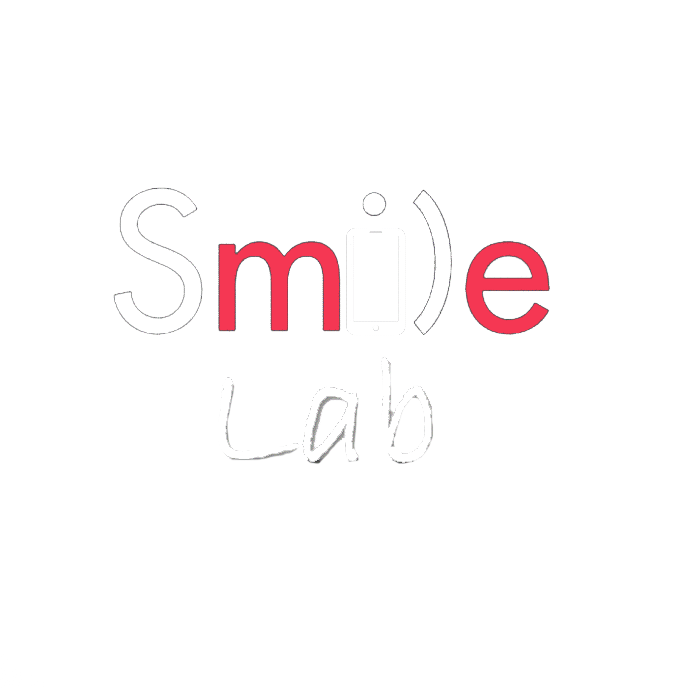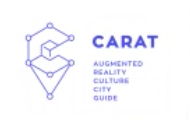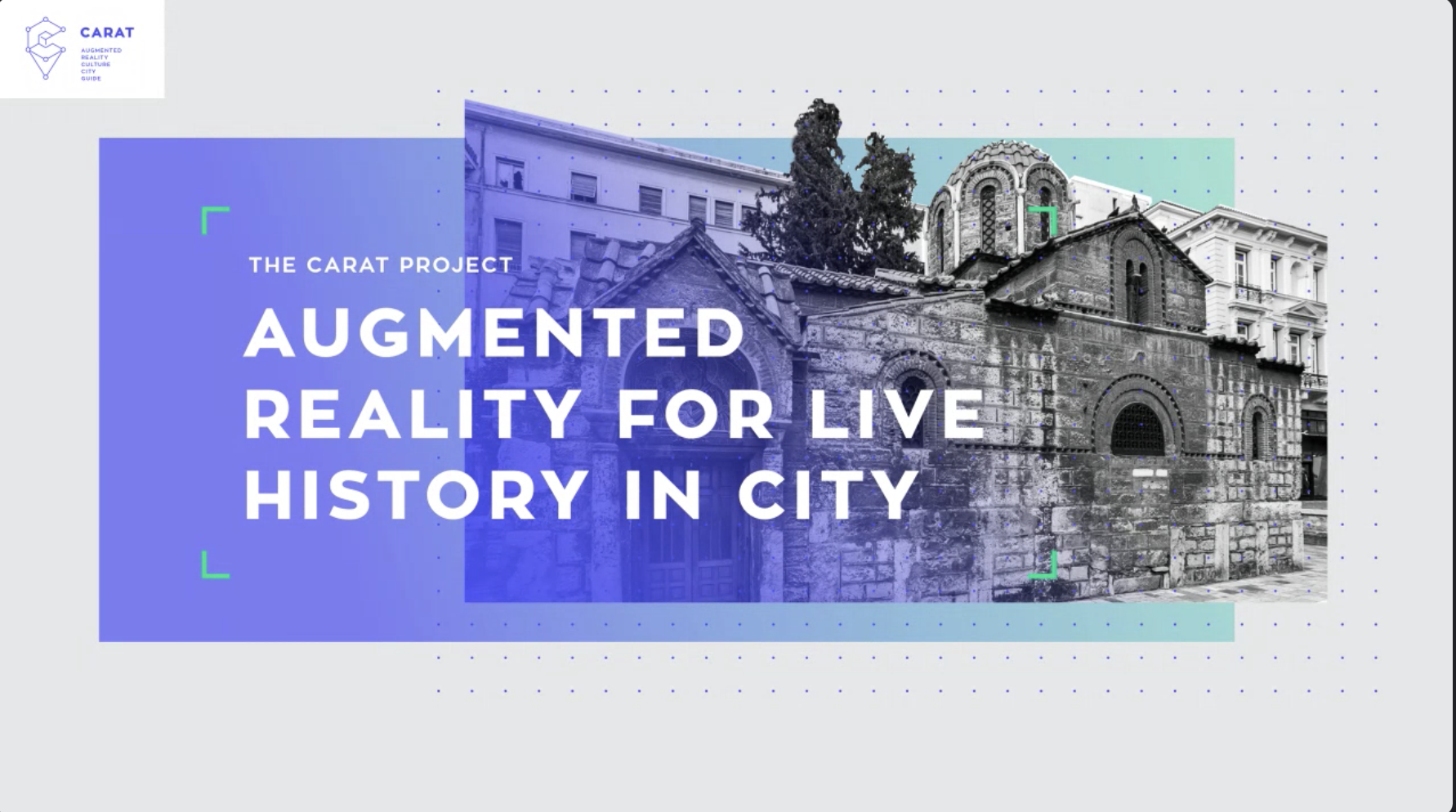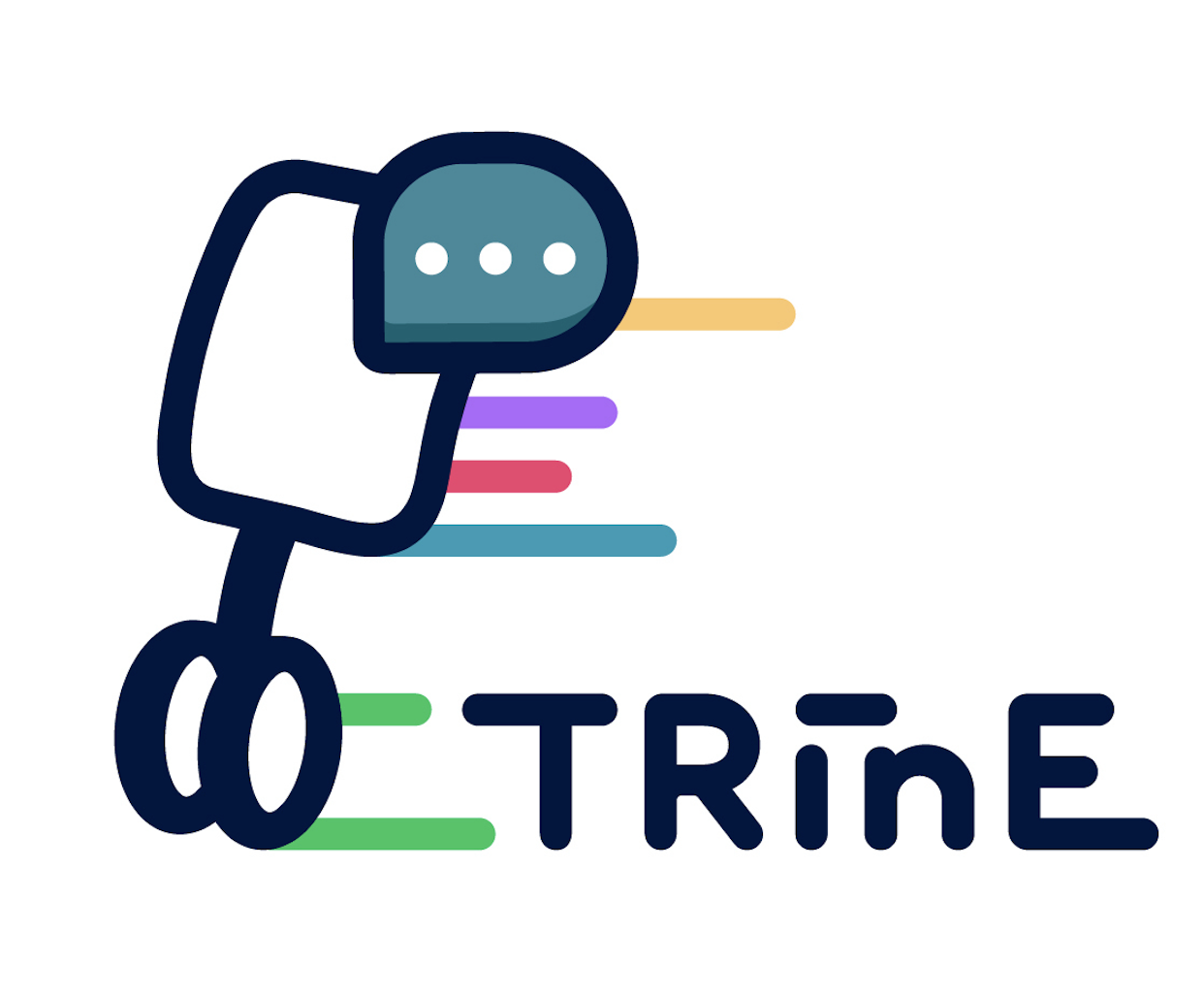Projects
National Projects
The CARAT project aims to leverage the cultural and historical content which is dispersed in the “Street names” of the big or smaller towns. The project’s aim is to develop an application which will offer the following:
- > It will offer first-hand historical information about the origin of a street’s name throughout augmented reality technologies,
- > It will associate concept - historical period, which is evoked by the street’s name, with points of cultural interest.
- > It will have the potentiality to drive the visitor, while suggesting personalized thematic – historical walks in town.
- >It will incorporate the geographical dimension and delivers customized information based on user's previous selections.
To achieve these goals, an online city platform is developed, which will host all the data related with each town’s streets, as well as an Augmented Reality application that will be designed for mobile phones and smart glasses.
CARAT has been funded by National funds through the Operational Program “Competitiveness, Entrepreneurship & Innovation” 2014-2020.
European Projects
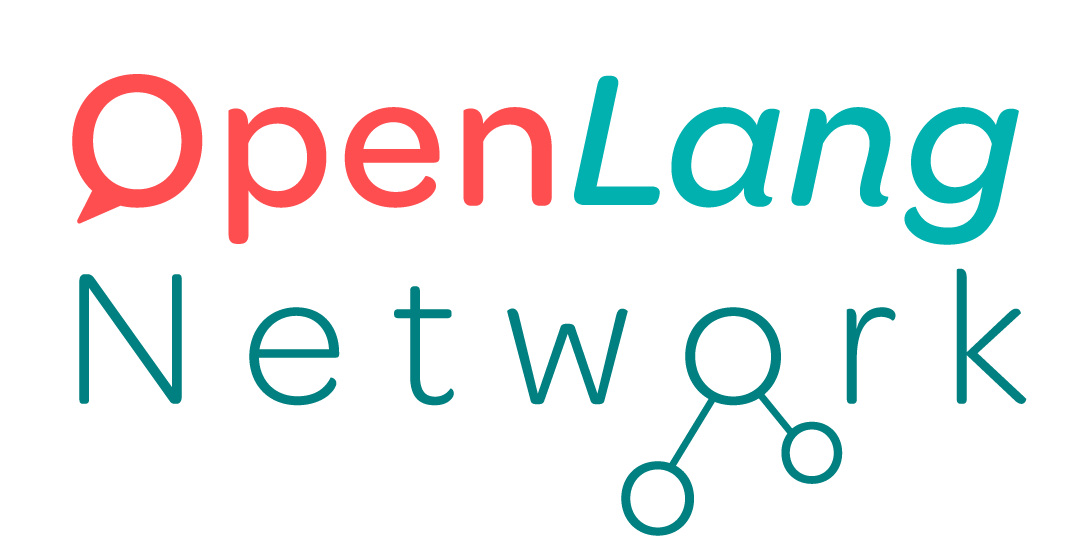
OpenLang Network
The OPENLang Network addresses the needs for linguistic skills and culture awareness of Erasmus+ KA1 mobility participants and the training needs for OERs of language teachers:
a) Erasmus+ KA1 mobility participants (HE students & staff, VET , Adult & School education staff, Youth learners, Youth Workers, Youth Entrepreneurs) that need to boost their language skills (24 EU) and cultural awareness including those who will not enroll in the OLS courses.
b) Volunteers language teachers who will support the Erasmus+ KA1 mobility participants offering their professional experience while receiving professional certified training on the creation, sharing and use of language OERs.
Coordinator: Smile Lab (University of Macedonia, Greece)
Learn more about OpenLang here.
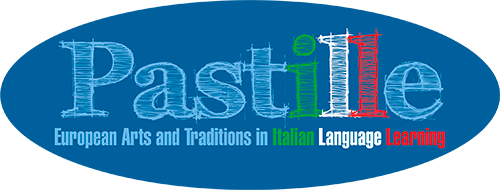
PASTILLE
The Pastille project is funded, by the European Commission through the Polish National Agency for the Erasmus+ Programme, with the aim to create an innovative teaching method for Italian as a foreign language. The project applicant is the University of Wroclaw.
Learn more about Pastille here.
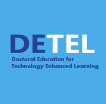
DE-TEL
Doctoral Education for Technology-Enhanced Learning (DE-TEL) project will establish and deepen a strategic partnership for doctoral education in Technology-Enhanced Learning (TEL). DE-TEL brings together 9 internationally renowned universities and the European Association of Technology-Enhanced Learning to reflect their expertise in doctoral education into a new internationally validated program in TEL, extended with rich and professionally produced Open Educational Resources. The project grounds the design of the new program in the best practices in TEL doctoral education across Europe as well as institutional and national requirements.
Learn more about DE-TEL here.

DC4LT
DC4LT is a consortium of five partners with complementary research & education expertise and a track history of successful collaboration. Aiming to build resources for language teachers on using ICT, we combine expertise on language learning, Computer Assisted Language Learning (CALL), digital Language Curriculum and Materials Development and Evaluation, blended and online teaching, and technology enhanced learning (TEL).
Learn more about DC4L here.
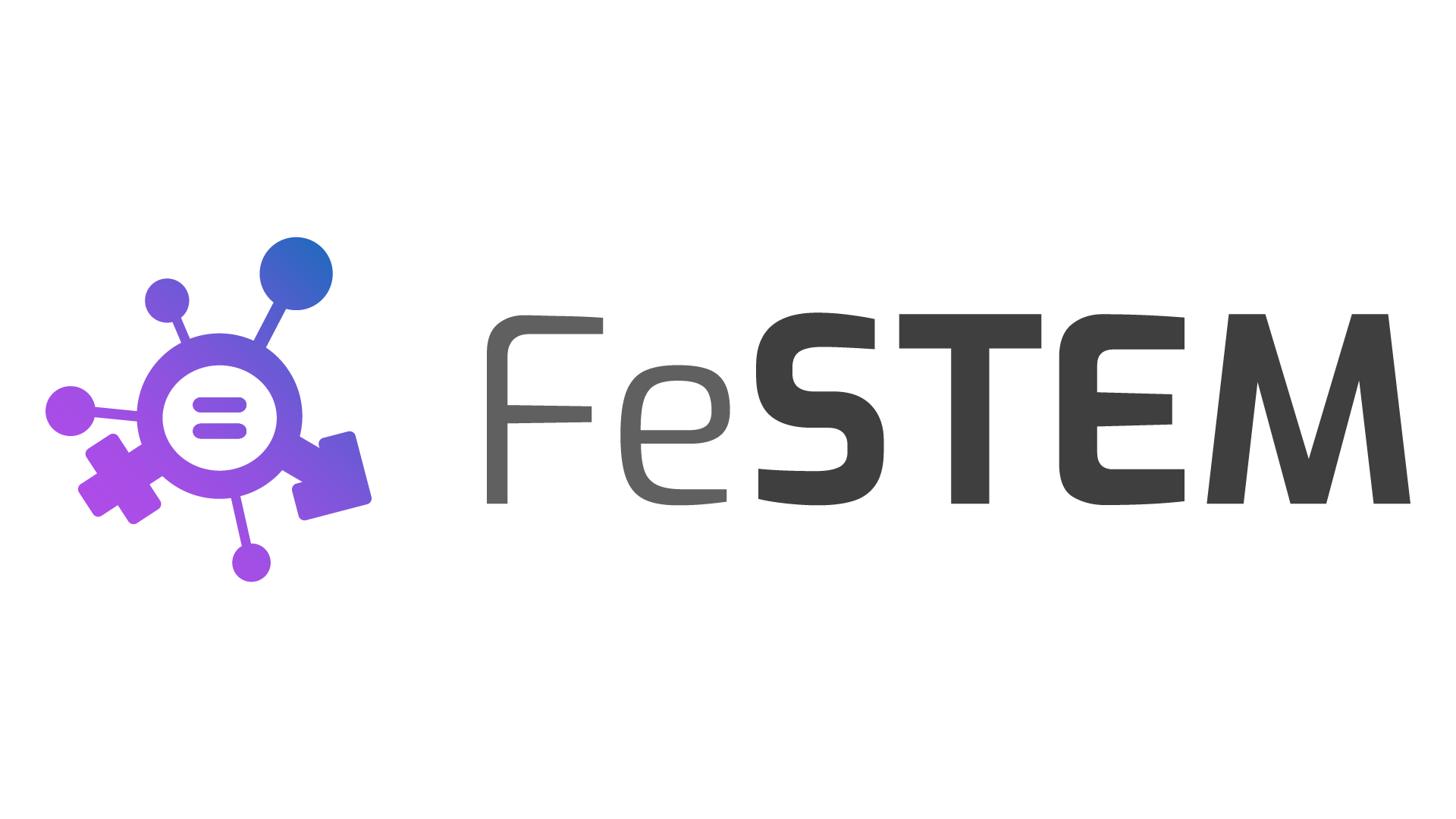
FeSTEM
Female Empowerment in Science, Technology, Engineering and Mathematics in Higher Education (FeSTEM) aims to promote an innovative method and pedagogy that will allow HE students to use traditional and computationally-rich media to create meaningful, shareable exhibits that will act as mentoring models for encouraging girls and women to remain active in STEM.
Learn more about FeSTEM here.
TRinE -> TELEPRESENCE ROBOTS IN EDUCATION
The main objective of the project is to enable educational institutions, teachers, and students in secondary education to draw on the potential of ‘on-site’ learning via the use of telepresence robots (TR). This means (1) enabling decision-makers to make informed decisions about whether and which TR solutions should be procured at a specific educational institution or even for an entire educational system; (2) providing educational institutions, teachers, and students with viable strategies to use TR solutions in a meaningful and effective way as part of their educational efforts; and (3) to make the relevant information on the use of TR accessible to as many educational institutions as possible, while promoting exchange about and raising awareness of the opportunities, challenges, and limitations of telepresence technologies.
These objectives will be achieved by firstly providing comprehensive data and information for decision-makers (intellectual output 1: TRinE Decision Support Materials); secondly by developing practice-oriented strategies for the use of TR in the educational context (intellectual output 2: TRinE Framework); and thirdly by developing an online toolkit where these materials are made accessible and can be discussed, evaluated and supplemented by users' own materials (intellectual output 3: TRinE Toolkit).
